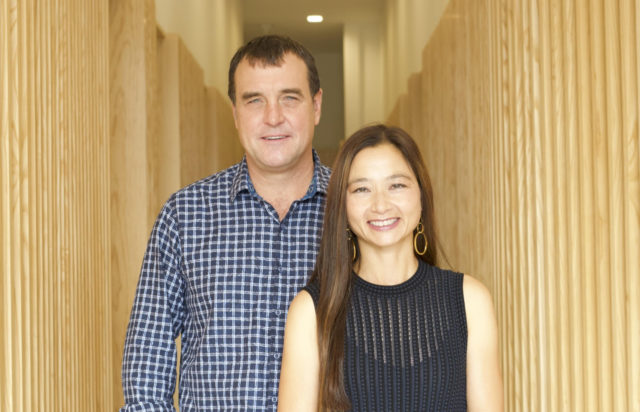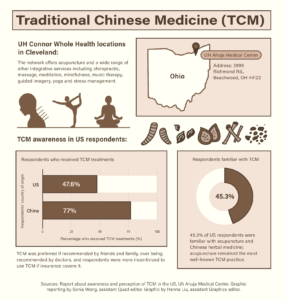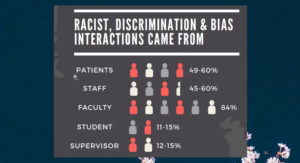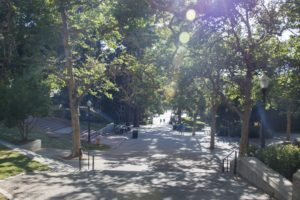Two UCLA ophthalmologists are bridging gaps in health care through a combination of Western and Eastern medicine.
In 2020, Drs. Tara and Colin McCannel founded Seyhart, a wellness center in Santa Monica that seeks to incorporate complementary medicine – a combination of alternative and traditional medical practices – into American health care. The center’s services include treatments for alleviating anxiety, insomnia, chronic pain and fertility issues, Tara McCannel said, adding that the two sought to combine Eastern and Western practices after seeing how Eastern patient care improved patients’ overall well-being.
Colin McCannel said throughout his time treating patients with ocular conditions, he noticed Western medicine often fell short of supporting the anxiety patients had from their conditions. He added that because Western medicine tends to be diagnosis-based, a patient who may not be defined as severely sick by Western standards may still be unwell.
He said complementary medicine can fill that gap left unaddressed by Western health care.
“I don’t think I would have thought of this 10 years ago,” Tara McCannel said. “The most rewarding thing for me is not fixing the eyeball but communicating with patients and helping them understand what’s going on and sort of being there as an expert. … They come in, and they’re afraid, or they’re worried about dying or these sorts of things – I can help them overcome that.”
The center’s name – which comes from the Indonesian word “sehat,” or “in good health” – reflects its focus on using complementary medicine, Tara McCannel said.
“When we were trying to think of a name, we wanted to create a word that was new because we want to create a whole new way of looking at health,” she said. “In complementary approaches, a person has to … come and start thinking about things differently. They might have to do more. They might have to exercise or do practices that don’t just happen in the doctor’s office.”
As such, rather than approach medicine from a single perspective, the McCannels combine their training with the expertise of trained acupuncturists to deliver high-quality complementary care, Colin McCannel said.
The couple was first exposed to Eastern medicine after they experienced some complications with pregnancy, Colin McCannel said. Through a combination of acupuncture and moxibustion – a technique that involves burning herbs near one’s skin – their baby was able to move into a safer position for birth, Tara McCannel said.
Colin McCannel added that complementary medicine turned a situation they had immense anxiety about into something more positive.
Complementary medicine offers patients an alternative treatment to prescription medications that might not only have negative side effects but also only mask an issue rather than treat it, Tara McCannel said. She added that acupuncture, for example, helps with more holistic treatment.
“In Chinese medicine, there are meridians connecting all the organs, which is completely different than what we learn in Western medicine,” Tara McCannel said. “If the person has unusual pain – say, for example, in their knee – they might get needles in their shoulder or in their back and other areas, because they’re moving the energy throughout the body.”
Marissa Luck, Seyhart’s assistant manager, said she thinks everyone can benefit from complementary medicine, whether it be for stress or preventative care. Luck added that she joined the Seyhart team after her experience with brain cancer treatment showed her the benefits of Eastern medicine.
Luck said being able to provide patients with the support to get through stressful times has been inspiring, adding that seeing the difference she has made in their days has moved her.
“We really have to believe that this is going to help people,” Tara McCannel said. “I think that sets us a little bit apart because most complementary places or places that offer acupuncture don’t usually work right in the office or … have medical doctors facilitating this.”
Tara McCannel said the clinic hopes to make more Western medicine physicians and Eastern medicine professionals open to the idea of combining the types of medicine.
Tara McCannel added that in order to educate more physicians about the center’s practice, Seyhart has been hosting open houses in which its acupuncturists demonstrate their practice. The center also hosts monthly community events, such as seminars focusing on mental health and women’s health, to teach both medical professionals and the general population about complementary medicine, Luck said.
Colin McCannel added that Seyhart aims to reach as many people as they can locally before branching out to more locations. Ultimately, the McCannels hope Seyhart can help pave a path to making complementary medicine more conventional in the United States, he said.
“As we become more part of the thinking of, hopefully, the medical community – both on the traditional side and the complementary side – hopefully people will think of us and say, ‘Oh, I think (for) your issues, I think Seyhart would be a great place to go,’” Colin McCannel said.






Comments are closed.